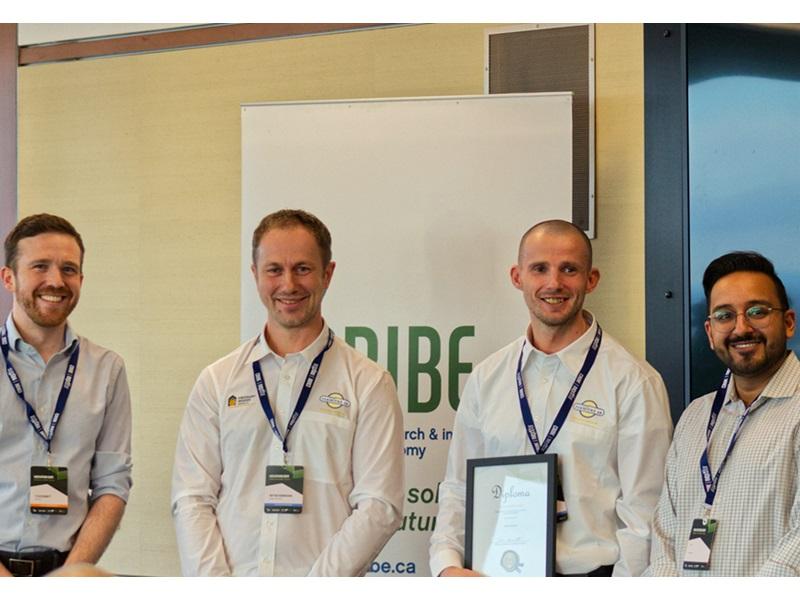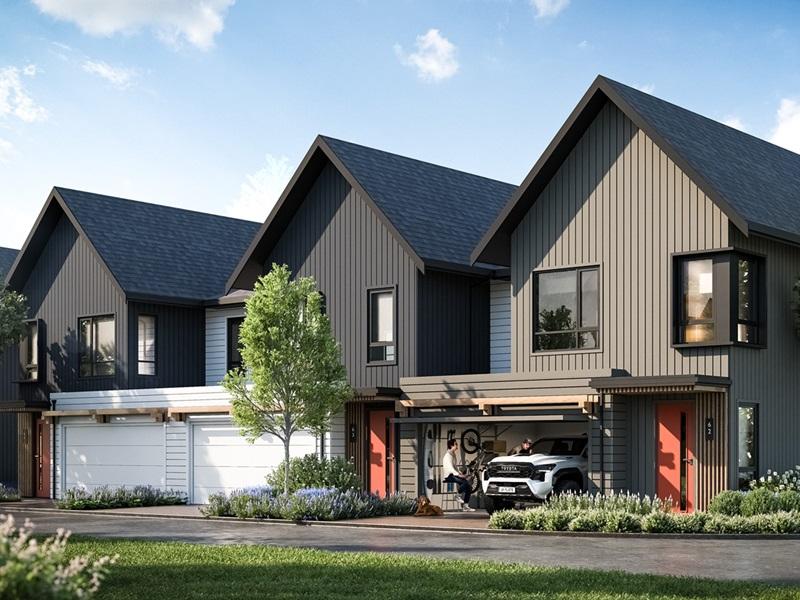
Ourboro, a Toronto-based shared equity investing company, says it is introducing a co-ownership model for housing to Canada that aims to widen access to shelter and intergenerational wealth.
Founded in 2019, Ourboro makes a down payment up to $250,000 toward eligible housing for its clients. In exchange, Ourboro and its private fund take a stake in the housing. When the unit is sold, Ourboro and its investors share in the return or loss on the property.
Alex Kjorven, the chief product officer of Ourboro, told RENX Homes in an interview that co-ownership is designed to tackle a heavy burden for prospective homeowners: the down payment. With down payments increasing faster than incomes, Kjorven said the problem is contributing to the narrowing of the generational wealth transfer.
“Ourboro looked at ‘OK, how can we take capital from investors who are looking to become landlords who want to park their money in real estate and get the returns. Can we take capital from investors but instead invest it alongside people who are going to be living in that home and taking caring of it?’” she said.
Currently operating in Ontario's Greater Golden Horseshoe, Ourboro expanded its model to Ottawa in late February, with the goal of more growth.
How Ourboro works
An interested homebuyer can start with Ourboro by applying on its website. Eligibility is then checked through criteria such as:
- citizenship or permanent residence status;
- if the buyer is acquiring a primary residence;
- if they have a minimum of five per cent saved for the down payment; and
- if they qualify for a mortgage, which is determined by Ourboro’s partner.
If the individual meets the requirements, they are introduced to lending options and get a mortgage pre-approval. Knowing the novelty of co-ownership in Canada, Kjorven said the company makes an effort to educate its clients on the rights and obligations as a homeowner, what happens if a loan agreement is defaulted on, and how a sale works.
Should the client still be interested, Ourboro will go to a realtor to begin house hunting. The housing of choice that covers many types of built forms (except pre-construction) must be between $550,000 to $2.5 million in value.
Once a property is chosen, Ourboro’s investment team will perform due diligence so the housing is not being overbid. The final step is for Ourboro’s legal partners to close the deal. Homeowners can co-own a property up to 30 years.
Ourboro’s investment fund is sustained by accredited investors like high-net-worth individuals, family offices and institutions. The fund will make a return if the property is sold at a gain, and homeowners can buy out Ourboro’s share. The company expects 97 per cent of homeowners to sell the property in the first five to seven years as its return expectation for investors.
If there is a profit from the sale, the proceeds are shared proportionately between Ourboro and the homeowner, with the homeowner taking the mortgage payments and the appreciated value of the down payment.
Who is Ourboro for?
Ourboro is “best suited for those looking for their starter home, not their forever home,” Kjorven said. This is due to the expectation most clients will move out of the co-owned home in approximately five years to cash out.
The co-ownership model is not intended for clients who can buy housing on their own, but those who face the uphill financial climb of making the steep down payment, Kjorven said.
“Owning 50 per cent of something is better than 100 per cent of nothing. Without shared equity as an option, you’re continuing to rent for an indefinite period of time.”
Its model shaves off nine years of savings time, on average, for homebuyers in its portfolio versus renting, Kjorven said.
Ourboro expects a receptive audience of people in their late 20s to early 30s, but its sweet spot has been younger families looking for a bigger home or newcomers to Canada who lack intergenerational wealth.
Addressing the wealth gap is also a key factor behind the company’s goal of making a social impact.
Being an impactful investor
Ourboro’s co-founders Nick Pope and Norm Tasevski (who passed away in 2021) come from the field of impact investing. Kjorven started in the financial sector on Bay Street, then moved to non-profits and impact investing.
“The genesis of this Ourboro model, that comes from recognizing that real estate has been one of the biggest contributors towards generational wealth, and those who have access to intergenerational wealth get a piece of that pie,” Kjorven said.
By opening home ownership to more people, Ourboro hopes to address the wealth divide. The company is launching a study with Conestoga College and the University of Waterloo to measure the difference made to its homeowners on aspects such as health and wellbeing, financial resiliency and civil engagement.
Ourboro has received 1,000 applications in 12 months and reached its 100th home milestone in its portfolio. Its referral partner program of realtors and mortgage brokers has grown to 1,200 people, signalling interest and growth in its offering, Kjorven said.
The company’s deployment has satisfied investors, and though it is too early to be reaping any profits from its investments, the numbers have been positive, she added.
Ourboro is in the middle of a $50-million fundraise to deploy on more housing acquisitions and expand across Canada.










